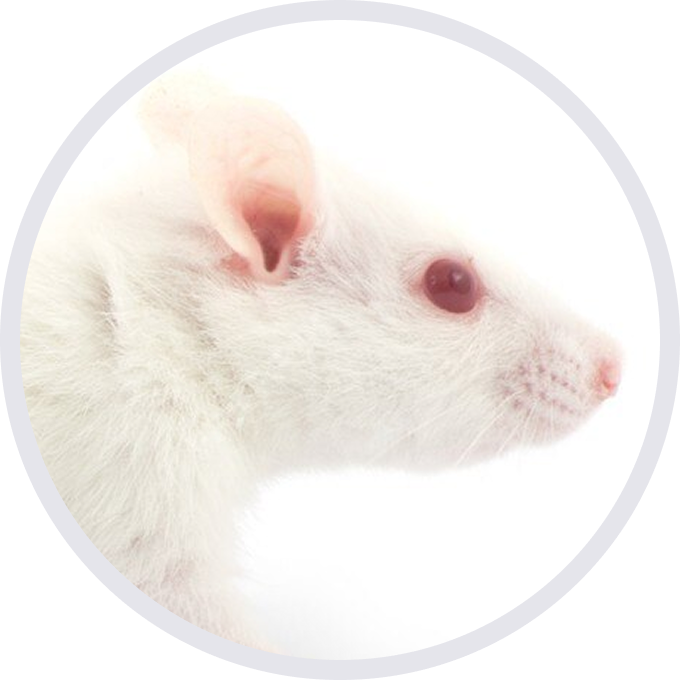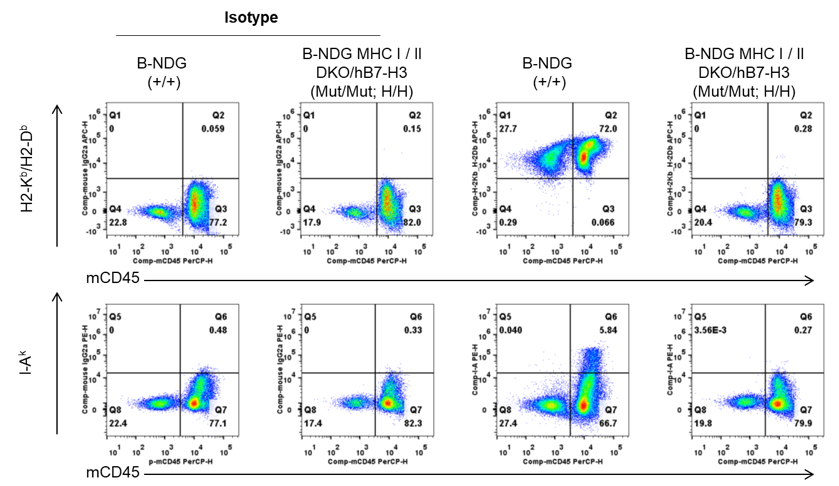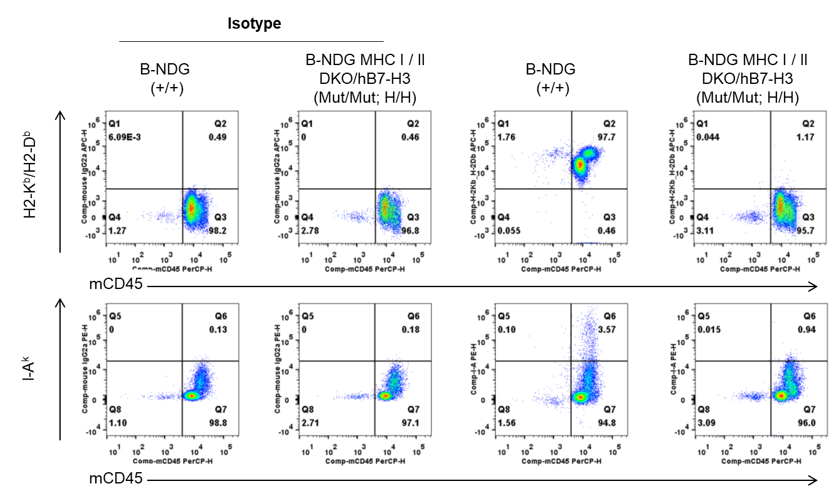
NOD.CB17-Prkdcscid Il2rgtm1BcgenH2-K1tm1BcgenH2-D1tm1BcgenH2-Abtm1BcgenCd276tm1(CD276)Bcgen/Bcgen • 112705

| Product name | B-NDG MHC I/II DKO/hB7-H3 mice |
|---|---|
| Catalog number | 112705 |
| Strain name | NOD.CB17-Prkdcscid Il2rgtm1BcgenH2-K1tm1BcgenH2-D1tm1BcgenH2-Abtm1BcgenCd276tm1(CD276)Bcgen/Bcgen |
| Strain background | B-NDG |
| NCBI gene ID | 3561,5591,80381,102657,16186,19090 (Mouse) |
| Aliases | 4Ig-B7-H3; B7-H3; B7H3; B7RP-2; CD132; CIDX; IL-2RG; IMD4; P64; SCIDX; SCIDX1; DNA-PKC; DNA-PKcs; DNAPK; DNAPKc; DNPK1; HYRC; HYRC1; IMD26; XRCC7; p350; B7RP; B7h3; B7RP-2; AU016588; 6030411F23Rik; gc; p64; [g]c; gamm; CD132; gamma(; gamma(c); DNA; DOX; dxn; DNA-; XRCC; p460; scid; slip; DNAPK; DNPK1; HYRC1; XRCC7; dxnph; DOXNPH; DNAPDcs;AI326420; AU019811; DNA-PKcs |
Gene targeting strategy for B-NDG MHC I/II DKO/hMSLN/hB7-H3 mice.
The murine B2m and H2-Ab1 gene were knocked out while a fused gene composed of murine B2m and Fcgrt gene was inserted after the signal peptide sequence of murine Fcgrt gene in B-NDG MHC I/II DKO/hMSLN/hB7-H3 mice.
The exons 3~4 of mouse Cd276 gene that encode the extracellular domain were replaced by human CD276 exons 3~6 in B-NDG MHC I/II DKO/hMSLN/hB7-H3 mice. The promoter, 5’ UTR and 3’UTR region of the mouse gene are retained. The human CD276 expression is driven by endogenous mouse Cd276 promoter, while mouse Cd276 gene transcription and translation will be disrupted.

Strain specific MHC I and MHC II expression analysis in homozygous B-NDG MHC I/II DKO/hB7-H3 mice by flow cytometry. Splenocytes were collected from wild-type B-NDG mice (+/+) and homozygous B-NDG MHC I/II DKO/hB7-H3 mice (Mut/Mut; H/H), analyzed by flow cytometry with species-specific anti-mouse H2-Kb/H2-Db antibody (Biolegend, 343906) and anti-mouse I-Ak antibody (Biolegend, 109908). MHC I and MHC II were only detectable in B-NDG mice, but not in homozygous B-NDG MHC I/II DKO/hB7-H3 mice.

Strain specific MHC I and MHC II expression analysis in homozygous B-NDG MHC I/II DKO/hB7-H3 mice by flow cytometry. Blood were collected from wild-type B-NDG mice (+/+) and homozygous B-NDG MHC I/II DKO/hB7-H3 mice (Mut/Mut; H/H), analyzed by flow cytometry with species-specific anti-mouse H2-Kb/H2-Db antibody (Biolegend, 343906) and anti-mouse I-Ak antibody (Biolegend, 109908). MHC I and MHC II were only detectable in B-NDG mice, but not in homozygous B-NDG MHC I/II DKO/hB7-H3 mice.

Western blot analysis of B7-H3 protein expression in homozygous B-NDG MHC I/II DKO/hB7-H3 mice. Various tissue lysates were collected from wild-type B-NDG mice (+/+) and homozygous B-NDG MHC I/II DKO/hB7H3 mice (Mut/Mut; H/H), and then analyzed by western blot with Anti-CD276 antibody (Abcam, ab219648). 40 μg total proteins were loaded for western blotting analysis. Human B7-H3 were detected in heart, liver, spleen, lung, skin, colon, stomach and brain in homozygous B-NDG MHC I/II DKO/hB7-H3 mice.